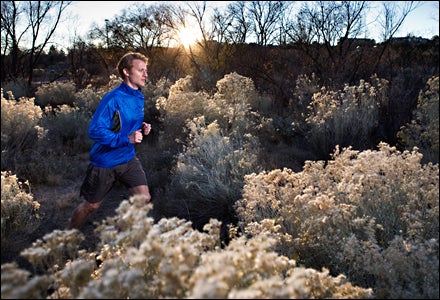Yes—and no. Hangovers are poorly understood, but the two main causes seem to be dehydration and excess acetaldehydea toxic leftover after your liver breaks down alcohol. Electrolyte-rich fluids can help offset the first problem, but no amount of exercise can accelerate your body's enzyme-powered cleanup after a bender.
Translation: you can't “sweat it out.”
But some light cardio can make you feel better. According to Pete McCall, an exercise physiologist with the American Council on Exercise, this might be due to increases in dopamine, which alleviates pain, and adrenaline. Others suggest the simple emotional lift of being active. “It's part of my personal recovery protocol,” says Walter DeNino, a triathlon coach and president of Trismarter.com. “If an athlete gets relief from it, they should do it.” (But stay off your bike: Coordination can be affected for hours after you've sobered up.)
Case Study 1
Outside editor Chris Keyes
- Scenario: The morning after “roughly” five G&T's at senior executive editor Michael Roberts's wedding in Connecticut
- Solution: A five-mile road run
- Result: “The hardest part was getting my running shoes on, but three hours later, I looked fine for a visit to my in-laws’.”
Case Study 2
Senior executive editor Michael Roberts
- Scenario: The morning after “red wine and mucho tequila” at a wedding in New Mexico
- Solution: A five-mile trail run, following Keyes's suggestion
- Result: “Ouch! I hate Chris. I felt even worse.”
The Bottom Line
Why did a run help Keyes and not Roberts? Most likely because Keyes was better hydrated. But he also helped himself by avoiding darker liquors; whiskey, brandy, tequila, and red wine have higher levels of congeners, by-products of fermentation that can exacerbate hangovers. “Whatever,” said Roberts.


